IPE/BC is an independent, non-partisan organization, however we recognize that IPE/BC Associates and guest authors hold a range of views and interests relative to public schools, education issues, and the political landscape in BC. Perspectives is an opportunity for Associates and others to share their ideas in short, accessible essays.
B.C.’s School Boards matter, but only if they act like it
December 14, 2025
By Patti Bacchus
With elected school boards under threat in Ontario, it is more important than ever for B.C.’s boards to demonstrate their relevance by engaging meaningfully with their communities and stakeholders.
Elected school boards are already gone in Nova Scotia, Quebec (where francophone boards were replaced, though anglophone boards remain), and Newfoundland and Labrador. Their elimination is part of a troubling trend toward increasingly centralized control of public education.
 In British Columbia, Education Minister Lisa Beare flexed her ministerial muscles shortly after her appointment by firing the elected Greater Victoria School Board and replacing it with a sole administrator. The board’s offence? Ending its police officer liaison program — a decision made after a lengthy public consultation and formal decision-making process, but one the minister appears to have disagreed with nonetheless.
In British Columbia, Education Minister Lisa Beare flexed her ministerial muscles shortly after her appointment by firing the elected Greater Victoria School Board and replacing it with a sole administrator. The board’s offence? Ending its police officer liaison program — a decision made after a lengthy public consultation and formal decision-making process, but one the minister appears to have disagreed with nonetheless.
I firmly believe that locally elected school boards are essential to a strong public education system — but only if trustees understand their governance role and lead collaboratively, transparently, and with authentic community engagement.
Unfortunately, I’ve seen that commitment erode in my own district, Vancouver. The Vancouver School Board now bars the public from attending standing committee meetings, upending decades of practice. It’s unclear what problem this change is meant to solve — the meetings are already livestreamed. Perhaps some trustees are simply uncomfortable with members of the public sharing the same physical space. The board has even begun forbidding photography and recordings during public meetings, another break from long-standing norms. For what purpose?
As the Vancouver School Board’s longest-serving chair, and as a former DPAC representative, I know how critical open committee meetings are to meaningful engagement and community-building.
But this isn’t about me. It’s about the survival of local democracy—and convincing the public that elected school boards are worth keeping. That case becomes very hard to make when people are made to feel unwelcome in meeting rooms, or are scolded or threatened for something as innocuous as taking a photo at a public meeting.
Even registering to speak to trustees has become a convoluted, bureaucracy-laden process that could be — and was — far simpler. What is the point of locally elected trustees if they go out of their way to make it difficult for the very people they serve to engage with them?
This problem isn’t unique to Vancouver or even to B.C. In The State of the System: A Reality Check on Canada’s Schools, Nova Scotia education writer and commentator Paul Bennett examines the evolution of school governance across Canada. He argues that “our public schools, initially established as the vanguard of universal, accessible, free education, have lost their way and become largely unresponsive to the public they still claim to serve.”
I don’t always agree with Bennett, but on this point he’s right in some cases.
Later in the book, Bennett observes that trustees are often treated as though they should “behave much like children in grade school, focus narrowly on policy, avoid administrative matters, keep their distance from local groups, respect rigid board solidarity, and act primarily as goodwill ambassadors.” This culture, he argues, cuts boards off from the communities they are meant to represent — and he identifies it as one of the factors that led to the elimination of elected trustees in Nova Scotia.
We should learn from that.
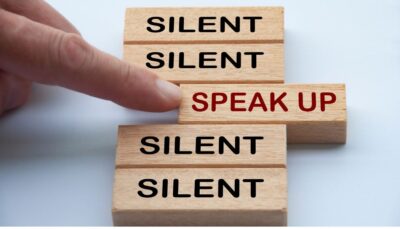 I frequently hear from newly elected trustees that they’ve been advised by senior management or their provincial organization not to speak to the media or engage with the public on social media. Good grief. What is the point of local government if local elected officials are discouraged from talking to the locals?
I frequently hear from newly elected trustees that they’ve been advised by senior management or their provincial organization not to speak to the media or engage with the public on social media. Good grief. What is the point of local government if local elected officials are discouraged from talking to the locals?
As an education columnist, I regularly contacted individual trustees for comment. Some told me they were “not allowed” to speak to journalists, because only the chair could do so. While it’s true that chairs speak on behalf of boards, individual trustees are also elected officials. They can— and should —speak publicly, provided they are clear they are not speaking for the board. Accountability demands open communication.
New trustees are also warned not to meet with community groups or individuals — especially union representatives — unless the entire board is present. That’s pure balderdash. The very purpose of local government is local contact. This siege mentality frustrates the public and, over time, risks breeding public indifference — making it far easier for governments to abolish school boards altogether with minimal public pushback.
Make the Most of a Whittled-Down Role
I served as a school trustee for eight years, without regrets. I worked with a strong caucus, and together we accomplished important work. We held the public’s ground against relentless pressure to close schools and sell valuable public land. We successfully negotiated hundreds of millions of dollars for new schools and seismic upgrades.
We developed a model for incorporating purpose-built childcare centres into new and rebuilt schools. We launched a Mandarin bilingual program, opened an Indigenous-focused school, and expanded early literacy intervention.
Yes, the trustee role is diminished from what it once was. Trustees can no longer levy taxes, and most collective bargaining now happens provincially. Still, I believe passionately that school boards can — and should — be among our most democratic institutions, precisely because they are closest to local values and concerns.
Outside of small-town city councils, there are few places where grassroots movements should be able to have more influence than at a local school board.
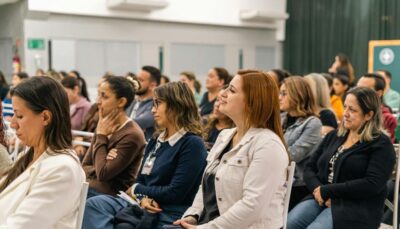 Vibrant, effective boards, where debate is encouraged, all voices are heard, and access to trustees is open, are a vital component of a high-functioning public education system. By most measures, Canada’s public schools are remarkably successful, delivering strong outcomes for the public investment they receive. Do school boards contribute to that success? I believe they do, at least in some cases.
Vibrant, effective boards, where debate is encouraged, all voices are heard, and access to trustees is open, are a vital component of a high-functioning public education system. By most measures, Canada’s public schools are remarkably successful, delivering strong outcomes for the public investment they receive. Do school boards contribute to that success? I believe they do, at least in some cases.
Yet many B.C. school boards are moving in the opposite direction. Restrictive codes of conduct muzzle trustees. Barriers discourage public participation. Boards increasingly take direction from management, rather than exercising independent governance. Too much of the public’s business— because school board business is the public’s business —takes place behind closed doors or in private emails instead of in public meetings, where it belongs.
B.C. school boards need to give themselves a hard shake. They must decide whether they want to do the hard but essential work of transparently representing the public — or continue fussing over decorum and control as they inch toward irrelevance.
I hope they choose the former. I fear many will continue with the latter, and we will all be poorer for it — especially students.
School board elections are next fall. Ask candidates to commit to open meetings with open public galleries, and to making public participation easy, not burdensome. Ask whether they understand how to use the trustee role to improve educational opportunities for all students — not simply to rubber-stamp management recommendations.
If you don’t want to listen to the public, or keep communication open, accessible, and respectful, then running for school trustee may not be for you.
School boards matter. Strong public schools depend on them. Don’t squander them by electing ineffective—or inaccessible—trustees.
Patti Bacchus is a former education columnist and is the Vancouver School Board’s longest-serving chair (2008-2014). She sits on the board of the Institute for Public Education (BC).
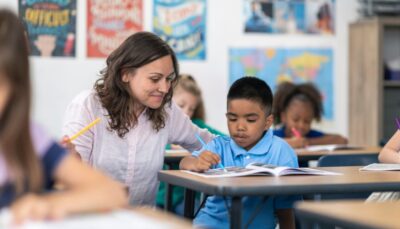 We know that not everyone learns the same way. Education professionals are adept at modifying curricula to suit a variety of learning styles and needs – Individual Education Plans (IEPs). But in a classroom with a large number and wide range of students, without an EA, teachers struggle to meet the learning needs of all their students.
We know that not everyone learns the same way. Education professionals are adept at modifying curricula to suit a variety of learning styles and needs – Individual Education Plans (IEPs). But in a classroom with a large number and wide range of students, without an EA, teachers struggle to meet the learning needs of all their students.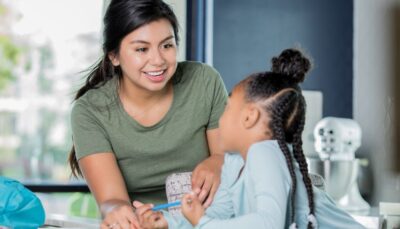 interaction with other students and encouraging friendships.
interaction with other students and encouraging friendships. This is not a unique situation. School districts across the province need more funding to adequately staff classrooms. Many districts are struggling with recruitment of qualified EAs due to lack of hours and earning potential. As school districts make more cuts to balance budgets, the crucial work of EAs will become more unsuitable – EAs will suffer more burn out and leave the profession, and kid will have less support.
This is not a unique situation. School districts across the province need more funding to adequately staff classrooms. Many districts are struggling with recruitment of qualified EAs due to lack of hours and earning potential. As school districts make more cuts to balance budgets, the crucial work of EAs will become more unsuitable – EAs will suffer more burn out and leave the profession, and kid will have less support.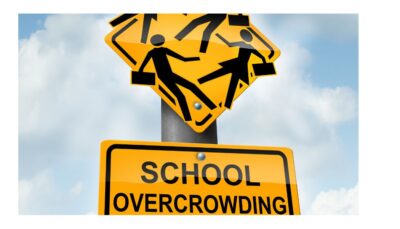 Surrey’s serious overcrowding issues span the district and all grade levels. It’s alarming that, in a number of cases, enrolment in their neighbourhood school has been cut off to neighbourhood children and youth. When the enrollment cut off hit the news two years ago, the response of the then Minister was to let parents/caregivers know that they would be able to find a school somewhere else in the district in which to enrol their children.
Surrey’s serious overcrowding issues span the district and all grade levels. It’s alarming that, in a number of cases, enrolment in their neighbourhood school has been cut off to neighbourhood children and youth. When the enrollment cut off hit the news two years ago, the response of the then Minister was to let parents/caregivers know that they would be able to find a school somewhere else in the district in which to enrol their children. We are not opposed to innovation- far from it! There have been countless educational decisions and innovations based on new understandings about how young people learn, how to support different learning styles and needs, and what values schools should reflect, to name just a few important drivers. Without the continual re-examination of teaching and learning, public schools would have been stuck in a time warp. However, we also have to think about the context for changes- while the expectations on schools have increased, the funding and support has declined. This is simply not sustainable, regardless of how much and how often the delivery model is changed.
We are not opposed to innovation- far from it! There have been countless educational decisions and innovations based on new understandings about how young people learn, how to support different learning styles and needs, and what values schools should reflect, to name just a few important drivers. Without the continual re-examination of teaching and learning, public schools would have been stuck in a time warp. However, we also have to think about the context for changes- while the expectations on schools have increased, the funding and support has declined. This is simply not sustainable, regardless of how much and how often the delivery model is changed. reported in studies vary and include isolation, social media and excessive time spent online, financial precarity and inequality, inadequate sleep levels, anxiety about climate change and other prevailing planetary issues, breakdown of community, and lack of supportive relationships.
reported in studies vary and include isolation, social media and excessive time spent online, financial precarity and inequality, inadequate sleep levels, anxiety about climate change and other prevailing planetary issues, breakdown of community, and lack of supportive relationships. 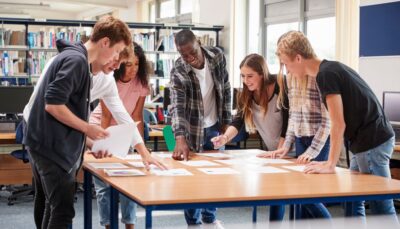 need to learn how to cope in the “real world”, the speaker is inevitably projecting their biases and their vision of the real world, as if that vision was a universal truth, unalterable and the only choice. We have to step back and ask ourselves if today’s manifestation of a “real world” is something we want young people to replicate. Surely, we who have left monumental social issues, raging inequality, and the planet’s very survival to the real world to the next generations to solve should not be the one to declare what the real world for the next generation should be.
need to learn how to cope in the “real world”, the speaker is inevitably projecting their biases and their vision of the real world, as if that vision was a universal truth, unalterable and the only choice. We have to step back and ask ourselves if today’s manifestation of a “real world” is something we want young people to replicate. Surely, we who have left monumental social issues, raging inequality, and the planet’s very survival to the real world to the next generations to solve should not be the one to declare what the real world for the next generation should be. Within weeks, he stopped entering the classroom. They called us daily, threatening to call 911 if we didn’t come quickly enough.
Within weeks, he stopped entering the classroom. They called us daily, threatening to call 911 if we didn’t come quickly enough. stretched thin. Children without formal diagnoses fall through the cracks. Parents fight for years to get their children diagnosed and then are told there are no resources to support them. Families feel like they are trapped in a cycle of bait and switch while our children are circling the drain.
stretched thin. Children without formal diagnoses fall through the cracks. Parents fight for years to get their children diagnosed and then are told there are no resources to support them. Families feel like they are trapped in a cycle of bait and switch while our children are circling the drain. School exclusion is a pipeline. It begins the moment a child is made to feel that their presence is conditional—that they are too much. And it compounds: in anxiety, in early police contact, in fractured families, in long-term reliance on disability supports.
School exclusion is a pipeline. It begins the moment a child is made to feel that their presence is conditional—that they are too much. And it compounds: in anxiety, in early police contact, in fractured families, in long-term reliance on disability supports.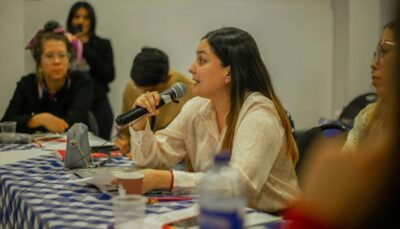 Parents/caregivers, support staff, teachers, trustees, advocacy organizations, and, in a number of cases, young people themselves are speaking out. They know well the impact of underfunding on student learning and well-being, and on the school community as a whole. They’ve been imploring the government to address the shortfalls, reverse the losses, and make public education a high priority. Their perspectives should be welcomed and respected.
Parents/caregivers, support staff, teachers, trustees, advocacy organizations, and, in a number of cases, young people themselves are speaking out. They know well the impact of underfunding on student learning and well-being, and on the school community as a whole. They’ve been imploring the government to address the shortfalls, reverse the losses, and make public education a high priority. Their perspectives should be welcomed and respected.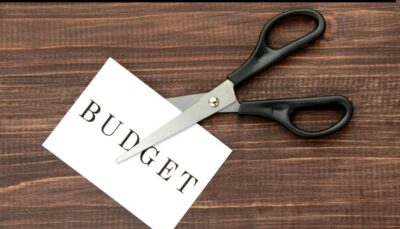 given or be subject to dismissal. It’s the provincial government dictates the size of the pie, regardless of whether it’s adequate, and boards are simply left to slice it up. We can safely conclude that no district would even consider cutbacks if the funding matched the costs.
given or be subject to dismissal. It’s the provincial government dictates the size of the pie, regardless of whether it’s adequate, and boards are simply left to slice it up. We can safely conclude that no district would even consider cutbacks if the funding matched the costs. same services as the year before. It’s very likely that the dollars allocated to most, if not all government services, are the “highest ever.” But, in terms of per pupil spending in education, BC does not have a record to crow about. According to Stats Can updated figures for the year 2022 (latest available) BC ranked fourth from the bottom of the provinces and territories in dollars per pupil dedicated to public education.
same services as the year before. It’s very likely that the dollars allocated to most, if not all government services, are the “highest ever.” But, in terms of per pupil spending in education, BC does not have a record to crow about. According to Stats Can updated figures for the year 2022 (latest available) BC ranked fourth from the bottom of the provinces and territories in dollars per pupil dedicated to public education. 
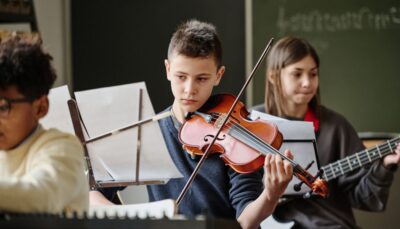 Music education allows students to access and express emotions that they may not otherwise have words or actions for. It helps them to manage their emotions. It also helps students to feel and to understand others’ emotions. When students play in an ensemble, they learn to listen – not simply hear – and they learn to wait for their turn. They learn to support others, and to create and enjoy the harmony that is realized in teamwork. These are life skills that make such students a better friend, partner, co-worker, and citizen. Music education has been shown to teach students to navigate social interactions and resolve conflicts in a positive way, to be more self-aware, and to be more empathetic. They read social cues and thrive.
Music education allows students to access and express emotions that they may not otherwise have words or actions for. It helps them to manage their emotions. It also helps students to feel and to understand others’ emotions. When students play in an ensemble, they learn to listen – not simply hear – and they learn to wait for their turn. They learn to support others, and to create and enjoy the harmony that is realized in teamwork. These are life skills that make such students a better friend, partner, co-worker, and citizen. Music education has been shown to teach students to navigate social interactions and resolve conflicts in a positive way, to be more self-aware, and to be more empathetic. They read social cues and thrive.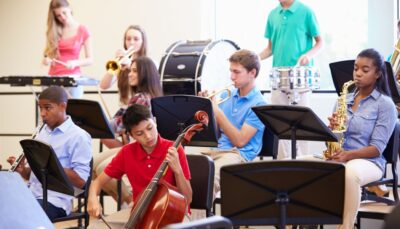 They study spirituals, protest songs and ballads that have been passed down through generations. Diverse styles such as jazz, classical, country, soul, singing, reggae, opera, folk, pop, rock, hip-hop, rhythm & blues, EDM (electronic dance music) are all part of a proper music education curriculum. These experiences show students who we are, where we have been, and who we can become. Music is a universal language; it transcends cultural and linguistic boundaries and connects us.
They study spirituals, protest songs and ballads that have been passed down through generations. Diverse styles such as jazz, classical, country, soul, singing, reggae, opera, folk, pop, rock, hip-hop, rhythm & blues, EDM (electronic dance music) are all part of a proper music education curriculum. These experiences show students who we are, where we have been, and who we can become. Music is a universal language; it transcends cultural and linguistic boundaries and connects us.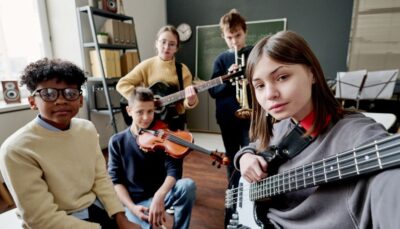 cards for – over 350 students, three times each year. I conducted five choirs, three bands and taught general Music K-grade seven. That meant three different staff meetings, innumerable parent-teacher meetings, eight festival entries and countless school concerts. My assigned ‘classrooms’ were school gyms, libraries and when lucky, portables. One school year, my meagre budget meant using fishing line to replace ukulele strings; a durable but not melodious remedy. Lunch ‘breaks’ were usually spent driving to the next school. Programs can devolve from quality to quantity; thirty minutes of music per week does not equate quality music education. Public school music education needs to be reconsidered as essential for brains, hearts, and our future, rather than a luxury or bonus that only students in private schools can access (look at a brochure for any private school and you will always see classes for stringed instruments and arts).
cards for – over 350 students, three times each year. I conducted five choirs, three bands and taught general Music K-grade seven. That meant three different staff meetings, innumerable parent-teacher meetings, eight festival entries and countless school concerts. My assigned ‘classrooms’ were school gyms, libraries and when lucky, portables. One school year, my meagre budget meant using fishing line to replace ukulele strings; a durable but not melodious remedy. Lunch ‘breaks’ were usually spent driving to the next school. Programs can devolve from quality to quantity; thirty minutes of music per week does not equate quality music education. Public school music education needs to be reconsidered as essential for brains, hearts, and our future, rather than a luxury or bonus that only students in private schools can access (look at a brochure for any private school and you will always see classes for stringed instruments and arts).